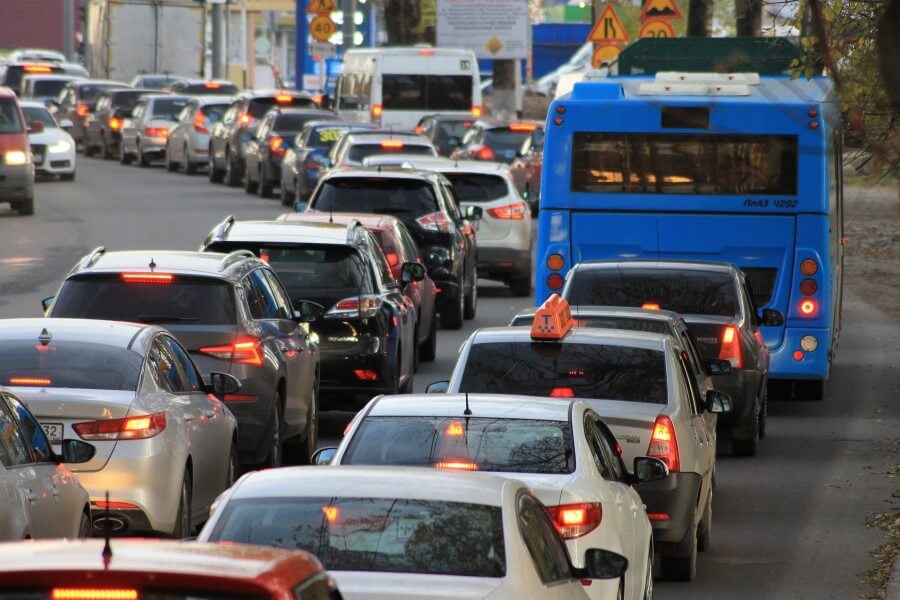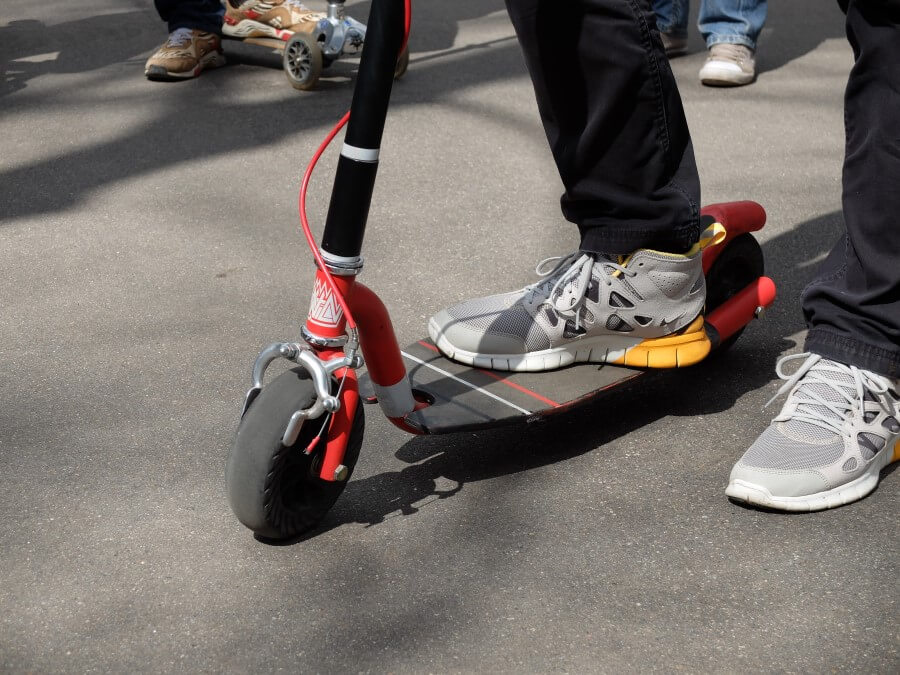In this blog, Dr Magda Cepeda Zorrilla looks at the opportunities lockdown has presented us with to think differently about the way we use transport, including the possible benefits for the environment as well as the quality of travel in general.
One could think about all the negative impacts that the coronavirus pandemic has triggered, for instance, the loss of jobs and the restrictions in mobility, amongst other impacts. And it seems to be clear that the current crises will keep bringing concerns to people and policymakers around the world. Nevertheless, we can look at this crisis as the opportunity to create innovative ways of thinking about cities and mobility. We can try to find the opportunity to address old problems by focusing on the new changes required to avoid the spread of the virus. One opportunity that can be taken by the West Midlands, is to use the crisis to help to improve the air quality in the region by helping people to adopt new forms of sustainable transport.
Car-based trips, air quality and COVID-19
Highly motorised urban environments can lead to poor air quality and noise pollution. The main air quality pollutants in the UK are NOx and particulate matter, which are traffic-related (Sayegh, et al. 2016). In the UK, poor air quality is the largest environmental risk according to the Department for Environment Food and Rural Affairs (DEFRA, 2019). In the West Midlands specifically, in 2017, the measurement of the air pollutants showed levels above the guidelines set by the World Health Organization (WHO) (DEFRA and PHE, 2017).

Although there are still limited studies about the influential factors in the development and severity of the coronavirus, previous research investigating the SARS outbreak argues that “air pollution conditions facilitate the spread of the virus” (Cui, Z. et al. 2003). Regarding COVID-19, some academic research has pointed out that air pollution could be linked to the increase of severity in the symptoms from COVID-19. For instance, Wu et al (2020) noted that “the majority of the pre-existing conditions that increase the risk of death for COVID-19 are the same diseases that are affected by long-term exposure to air pollution”. In Italy, the Italian Society of Environmental Medicine stated that particle matter plays a role as “carrier (or boost) action along with the virus” (Martelletti, L. and Martelletti, P. 2020 citing Setti, et al. 2020).
Considering air pollution as a potential contributory factor for the severity in COVID-19 symptoms raises an important alarm for the West Midlands, which, as mentioned earlier, suffers from poor air quality. And it is possible that trying to avoid social contact in public transport might trigger the growth in car use. That is why now more than ever it is important to focus on providing mobility alternatives.
Initiatives aiming to promote sustainable transport and encourage other forms of mobility can help to reduce air pollution as well as maintain social distance. The UK has attempted to incentivise the use of the bicycle. For instance, the government has announced a £250 million emergency fund to incentivize active travel. In the West Midlands, the Transport for West Midlands (TfWM), Birmingham City Council and Coventry City Council are taking a step forward to try new forms of mobility to allocate the demand for public transport (WMCA, 2020). An example of this is by the trials for electric scooters
Urban micro-mobility
Micro-mobility options are single-user vehicles characterized for being light, small, often electric and enabled by technological innovations. Electric scooters (e-scooter) is one of the most common forms of urban micro-mobility but also include other options such as e-bicycles, folding bicycles, hoverboards, and monowheels (Tuncer, S. and Brown, B. 2020). To date, in the UK “most micro-mobility vehicles cannot legally be used on the road” (DfT, 2020).
With the challenges that COVID-19 has brought to the UK, the regulation on the use of e-scooters in the UK is about to change. Now the government is planning to carry out e-scooter trials apparently from June 2020 “to help encourage more people off public transport and promote the use of greener alternatives” (DfT, 2020). The trials will help to assess the potential benefits and challenges regarding public space of the e-scooters, but also to explore the potential for the implementation of a shared system.
The West Midlands is leading one of the four “Future Mobility Zones” to assess the use of micro-mobility by planning trials for the e-scooters from this summer. The other three zones are West of England Combined Authority; Portsmouth and Southampton and Derby and Nottingham (TfWM, 2020). If the trial is successful, it will provide more sustainable choices for the region, which in turn can potentially reduce car use for short journeys. Achieving this modal shift, could have a positive effect on the air quality in the region whilst simultaneously can help to alleviate the demand for public transport which is required to be able to keep social distance.
Previous research has shown that e-scooters present diverse advantages in contrast with other commuting options, for instance, compared with walking they allow to travel longer distances. When comparing with bicycles, e-scooters are easier to use and if foldable, they allow inter-modality (Tuncer, S. and Brown, B. 2020). The trials are also important to understand the role of implementing its use as part of the shared mobility to attract more spontaneous users.

Shared mobility constitutes part of a wider phenomenon known as the ‘Shared Economy’, which consist of the extensive use of emerging information and communications technology (ICT), especially by using smartphone apps to be able to access and manage transport alternatives (Le Vine, S. and Polak, J., 2015). The main aim of shared mobility is to “maximize the use of vehicles by sharing them among multiple users, encourage more transport options, and aim to reduce transportation costs for users” (Kodransky, M. and Lewenstein, G. 2014). The most common types of shared mobility are bike-share, car-share and ride-share.
The launch of the e-scooters as a shared system is something that should be taken with caution because the same attempt was done with a bike-sharing system in the region (specifically Nextbikes in Wolverhampton) and the project got cancelled. There hasn’t been any information about revisiting the project, so it would be disappointing that the same could happen to the e-scooters.
The current discussion about the use of e-scooters centres is the negotiation of the space to use the scooters and its regulatory framework and how sustainable and safe they can be (Reck, D. et al. 2020). Regarding the negotiation of public space with other forms of mobility, it has been argued that this can be considered as the “normal troubles” that a new technology faces when entering the field (Tuncer, S. and Brown, B. 2020). But as the DfT has pointed out “with the right regulatory framework, micro-mobility alternatives can offer benefits for individuals and society” (DfT, 2020).
In the end, the initiative of the West Midlands to carry out trials should be considered as something positive and should serve to boost collaborations between academia and policymakers to produce research evidence.
Whether e-scooters are owned by individuals or whether they are part of a shared system, they can provide alternative ways to commute for short or even medium distances. Car usage has led to high levels of air pollution and if there is evidence (even though it might be still limited) of a potential relationship between the levels of air pollution influencing the severity of the COVID-19 symptoms, the pandemic provides an opportunity to adopt a different commuting lifestyle. If, as said by Dr Adhanom, leader of the World Health Organization (WHO), “COVID-19 will stay with us for a long period of time” we need to be creative and innovative to provide the necessary alternatives to commute in the medium and the long term.
This blog was written by Dr Magda Cepeda Zorrilla, Research Fellow at City-REDI / WM REDI.
Disclaimer:
The opinions presented here belong to the author rather than the University of Birmingham.
To sign up for our blog mailing list, please click here.
